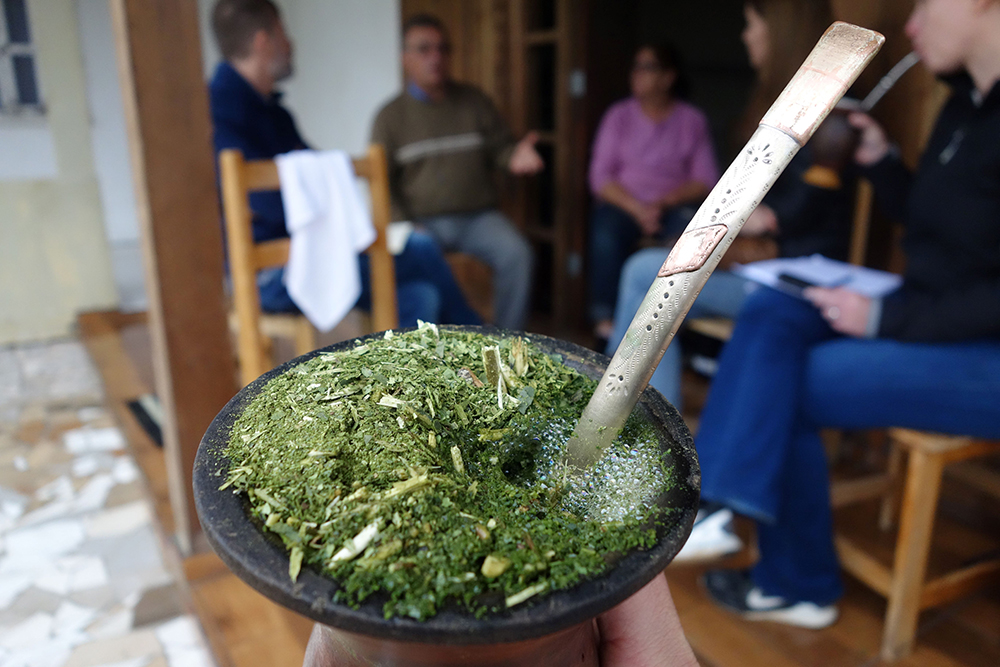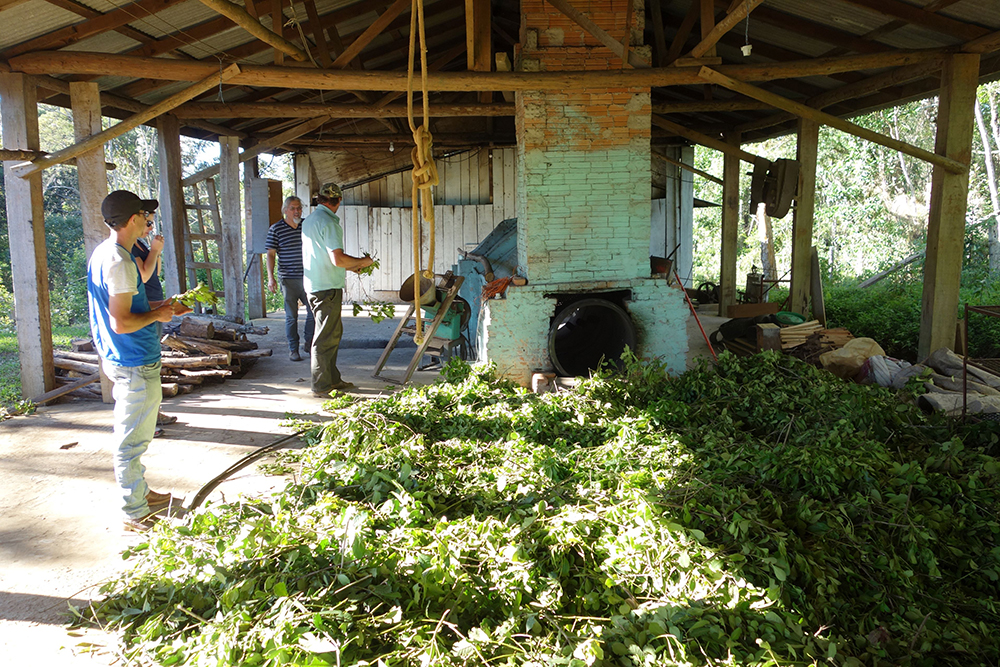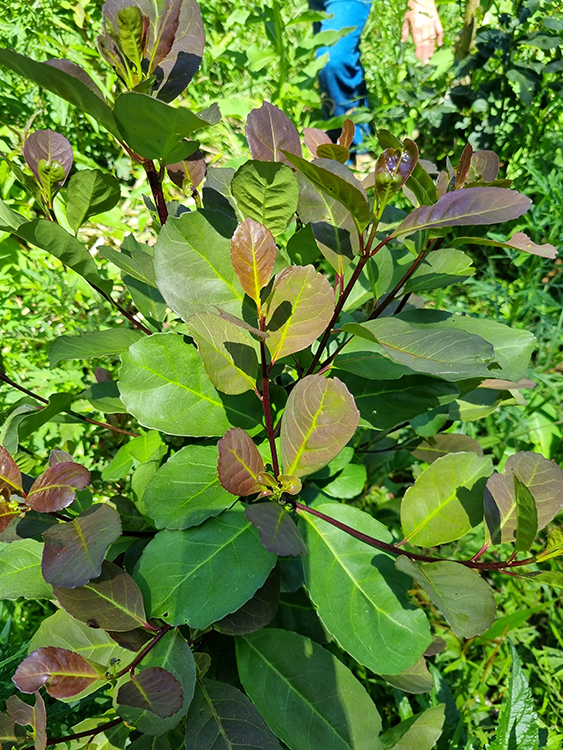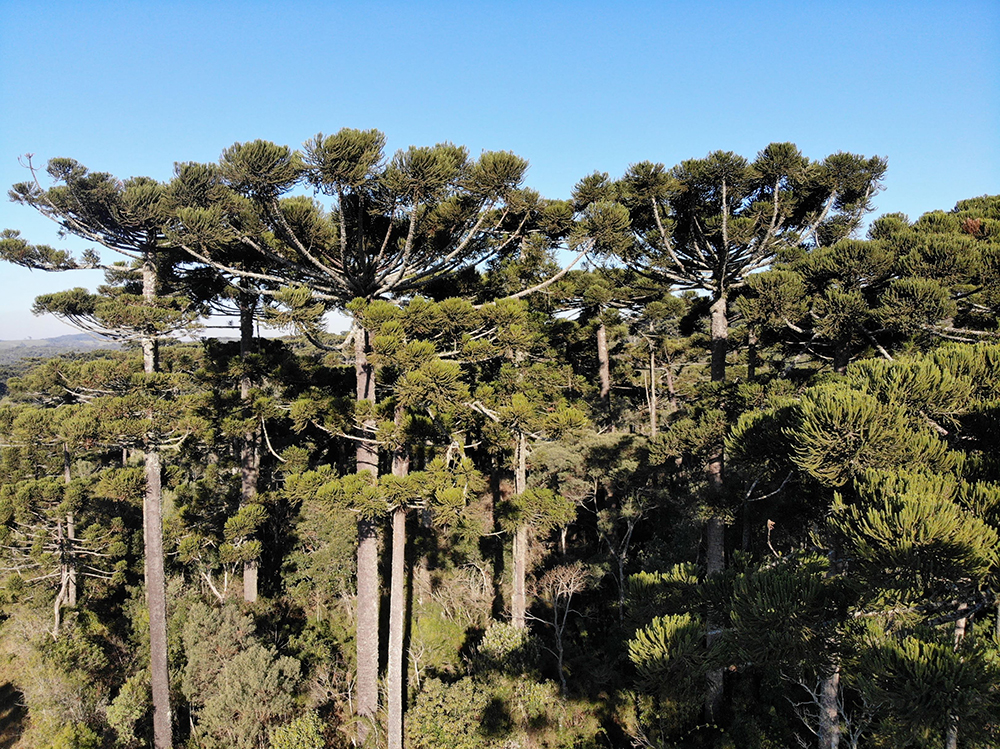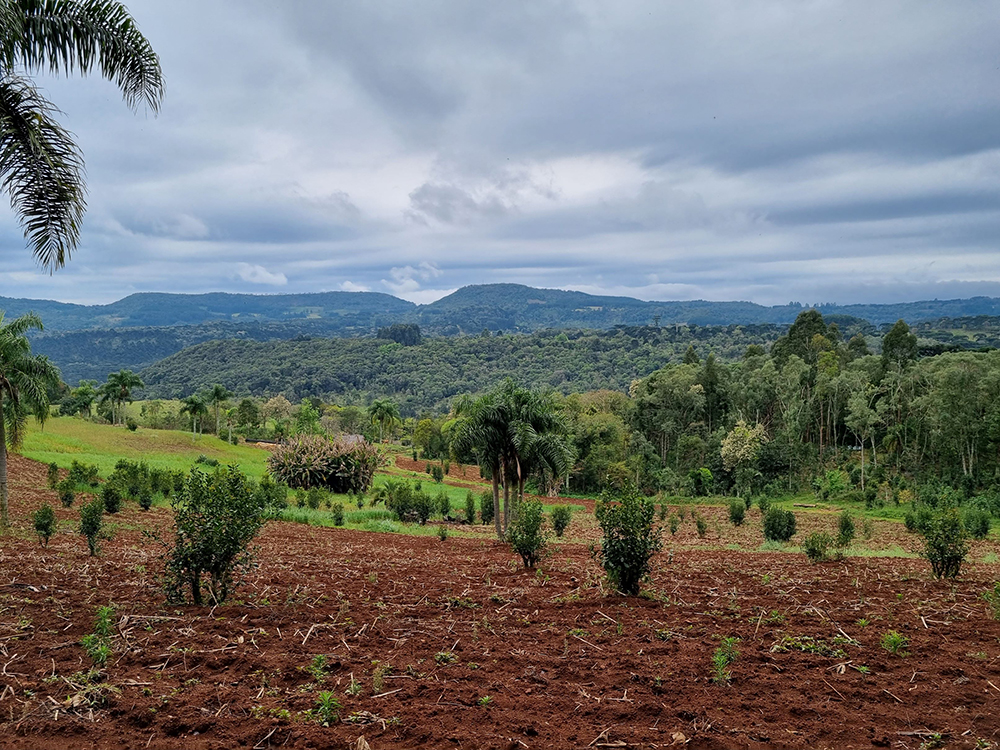The Southern Brazil team is working to strengthen traditional erva-mate production systems for farming families and Indigenous communities in Southern Paraná. Over the past months, the team has continued community engagement efforts by conducting farm visits, hosting meetings, and holding workshops to build capacity among farming organizations and communities. Ongoing research has focused on understanding food procurement and organic certification processes, as well as testing a new “Property Map” methodology. The team has also facilitated meetings with municipal and inter-municipal councils to gather support in developing a new initiative, the Payment for Socio-Environmental Services (PSSA) project, which aims to pay farmers for the environmental benefits of erva-mate production.
Several members of the research team were in Montreal, Canada in May 2024 for the first FLOW Partnership Meeting, and Eve Nimmo and Alessandra Carvalho attended the World Congress of Environmental History in Finland in August 2024 to connect with international colleagues and present the paper, “Traditional erva-mate agroforestry systems in southern Brazil: Valuing environmental subjectivities in the face of dominant conventional agriculture narratives.” New knowledge mobilization outputs have been developed through the support of another grant, “Voicing Change” resulting in the release of CEDErva’s own podcast “Vozes do Mate.”
Meeting in Montreal (May 2024)
The Brazil team traveled to Montreal, Canada in May 2024 to participate in the inaugural FLOW Partnership Meeting. For Alessandra Carvalho, the meeting Montreal was very special, providing the opportunity to meet colleagues from other countries and learn about the work that each group is developing. She also said that it was an important moment to create and strengthen academic and emotional ties: “The exchange of experiences was very enriching, especially because many of us still have many doubts about how to do what we want, and knowing that we have a great team supporting us is comforting and, at the same time, stimulating. The care and dedication of the team that welcomed us deserves to be highlighted and many thanks, as they truly provided us with a full week: intense debates, inspiring field trips, delicious meals and all wrapped up in great joy at finally being together in person.” Read more on CEDErva’s blog.
Environmental Services Project
Through participatory engagement with a broad group of unions, associations, and cooperatives in the region, the Brazil team is building collective action capacity, securing resources and mobilizing support for new initiatives. One new initiative is the participatory development of a Payment for Socio-Environmental Services (PSSA) project in partnership with researchers from the Brazilian Agricultural Research Corporation (EMBRAPA). Producing erva-mate is a sustainable practice because the trees grow in native forests, and the production process is inherently based on traditional and agroecological knowledge that enriches the entire ecosystem. These practices help protect the remaining Brazilian Atlantic Forest and provide important environmental benefits. Recognizing these benefits, the PSSA project aims to compensate agroecological and agroforestry farmers for the ecosystem services their activities provide and benefit society as a whole. The Brazil team is interested in testing the feasibility of this program.
Property Maps Methodology
The research team is also working on developing a new “Property Maps” methodology. Technical visits to rural properties over the past few months have been crucial in identifying local needs and promoting knowledge exchange between producers and technicians. These visits have informed the development of the “Property Map” to produce data that helps map and understand the changes in food systems linked to traditional erva-mate production systems by monitoring a small group of farmers throughout the FLOW project.
Legislation Research
The team has also been conducting research on current legislation related to food procurement programs and the certification of organic products. Master’s student Laureen Silva is working on mapping the main certifications and identifying the market access opportunities they provide. Master’s student Murilo Carlos Siqueira has conducted a review of current legislation related to food procurement programs and the certification of organic products. Their research aims to identify the main barriers and opportunities for farmers to access markets and strengthen the food system.

